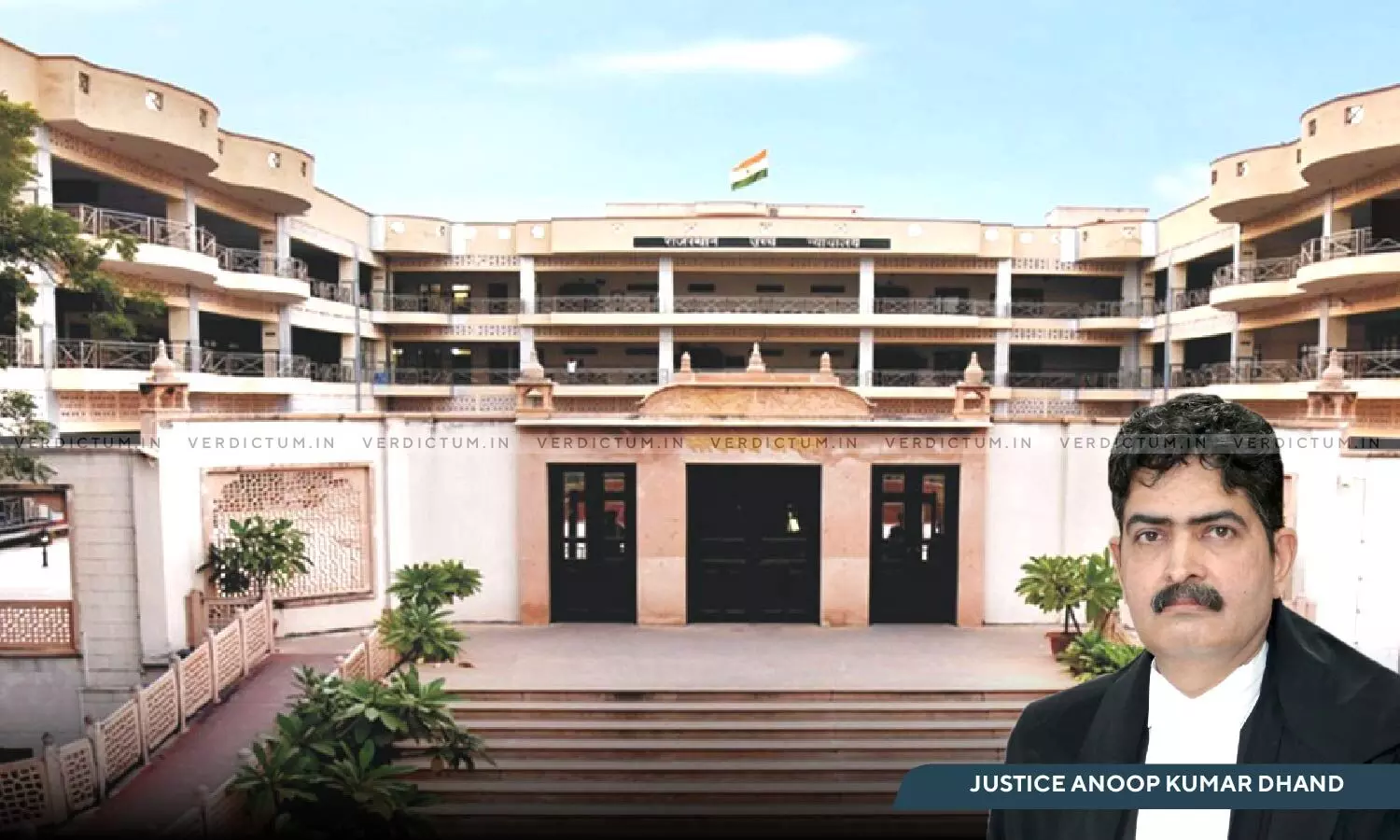
Justice Anoop Kumar Dhand, Rajasthan High Court
Judgment Can't Be Reserved For Indefinite Period After Arguments Are Concluded: Rajasthan High Court
 |
|The Rajasthan High Court was considering a Writ-Petition challenging an order passed by the Executing Court, Rent Tribunal by which warrant under Order 21 Rule 35 CPC was issued against the Petitioner for vacating the rented premises.
The Rajasthan High Court has held that judgments cannot be kept reserved for an indefinite period.
The Court was considering a Writ-Petition challenging an order passed by the Executing Court, Rent Tribunal by which warrant under Order 21 Rule 35 CPC was issued against the Petitioner for vacating the rented premises.
The Bench of Justice Anoop Kumar Dhand observed, "It is not expected from the Rent Appellate Tribunal to keep the judgment reserved for an indefinite period, more particularly, when the arguments have been heard and concluded on 28.01.2025 itself, the Presiding Officer is not expected to keep on posting the matter for pronouncement of judgment from one date to another."
The Petitioner was represented by Advocate Akshit Gupta.
Facts of the Case
Counsel for the Petitioner submitted that the Respondent's Application under Sections 6 and 9 of the Rajasthan Rent Control Act, 2001 against the Petitioner for his eviction from the rented premises was allowed by the Rent Tribunal against which a statutory appeal was preferred by the Petitioner. The Counsel averred that though the final arguments were heard on January 28, 2025, the judgment remains to be pronounced till date despite the matter being posted several times. He further contended that in the meantime, the Executing Court is proceeding further to evict the Petitioner from the rented premises, and therefore, appropriate orders are required to be passed.
Reasoning By Court
The Court referred to the Supreme Court's ruling in Balaji Baliram Mupade & Ors. Vs. The State of Maharashtra & Ors., 2021 whereby the Court considered it imperative that the Judicial discipline requires promptness in delivery of judgments.
It also cited Supreme Court's decision in Anil Rai Vs. State of Bihar wherein it was held that once the matters are reserved for pronouncement of order, usually, the same should be pronounced within a reasonable time schedule.
"The right of speedy and expeditious disposal of the case, trial is one of the most valuable and cherished right of a litigant guaranteed under Article 21 of the Constitution of India. It is an integral and essential part of the fundamental right of life and liberty enshrined under Article 21," the Court stated.
The Court also stressed on Section 19(8) of the Act of 2001 which lays that the Appellate Rent Tribunal shall dispose of the appeal within a period of one hundred and eighty days from the date of service of notice of appeal on the Respondents.
The Court accordingly disposed of the Petition with expectation from the Rent Appellate Tribunal to pronounce the judgment, expeditiously as early as possible, preferably within a period of two weeks from the date of receipt of certified copy of this order.
Cause Title: Ramswaroop vs. Moolchand Saini (2025:RJ-JP:17311)
Appearances:
Petitioner- Advocate Akshit Gupta, Advocate Pragya Seth, Advocate Ahmed Anas and Advocate Nakul Bansal.
Click here to read/ download Order